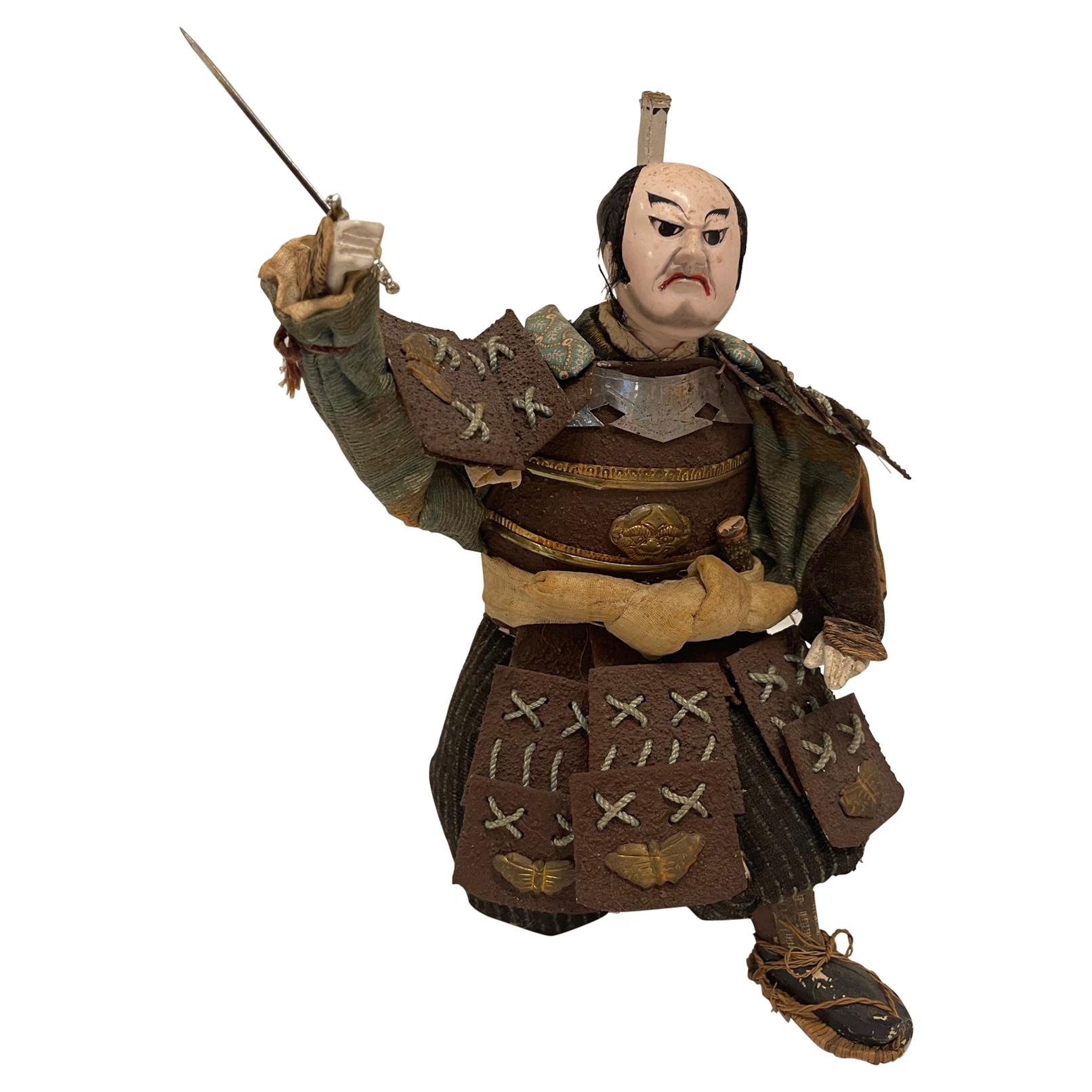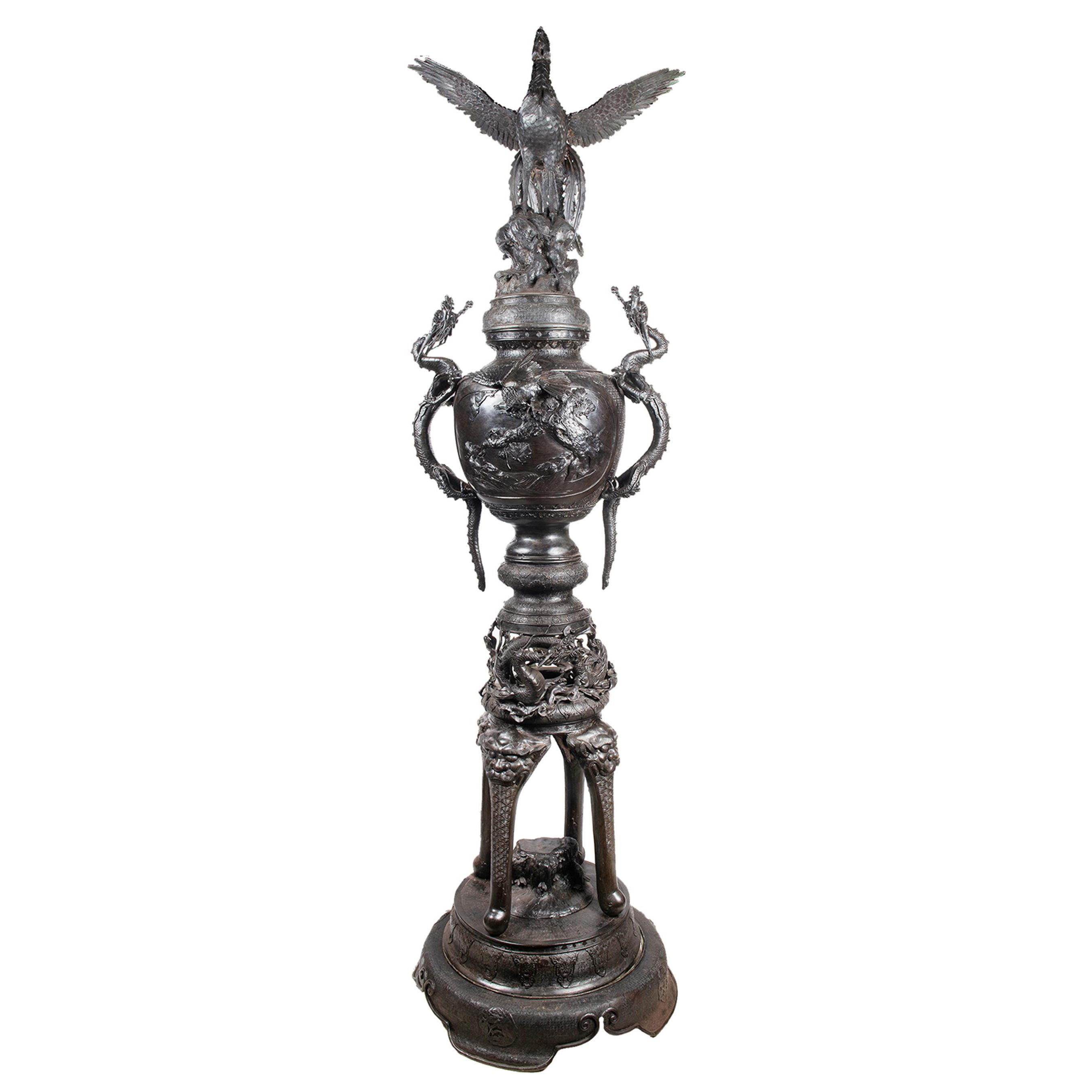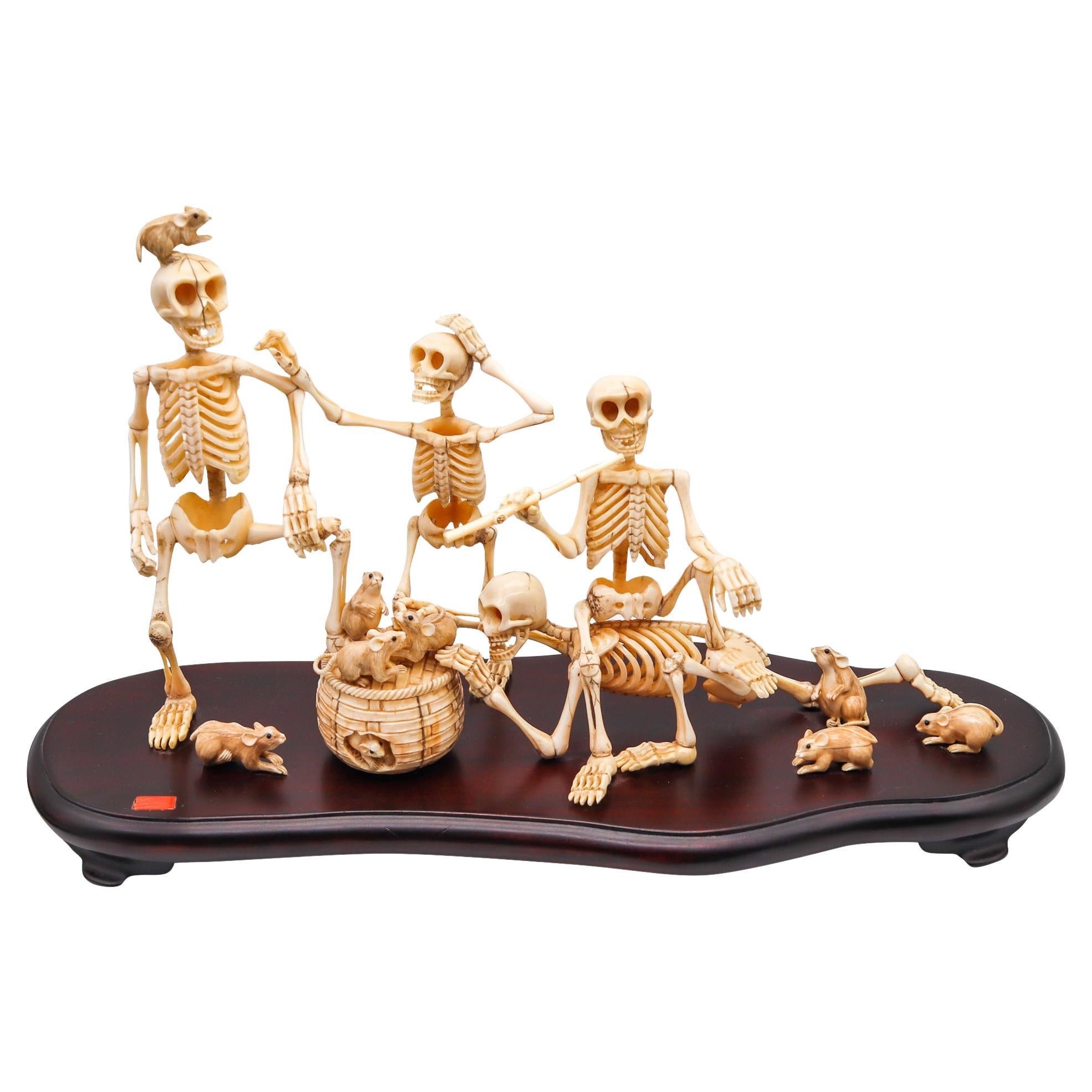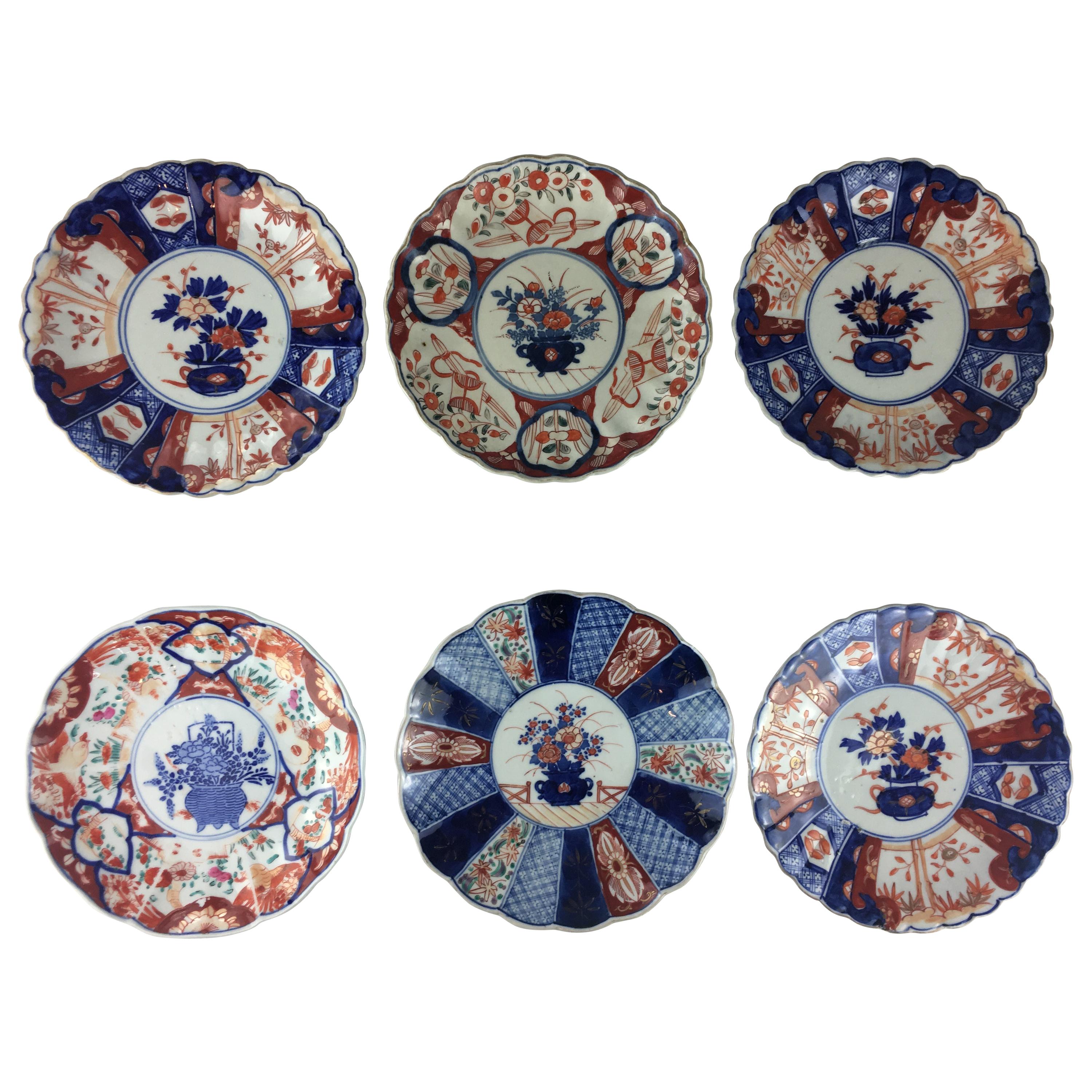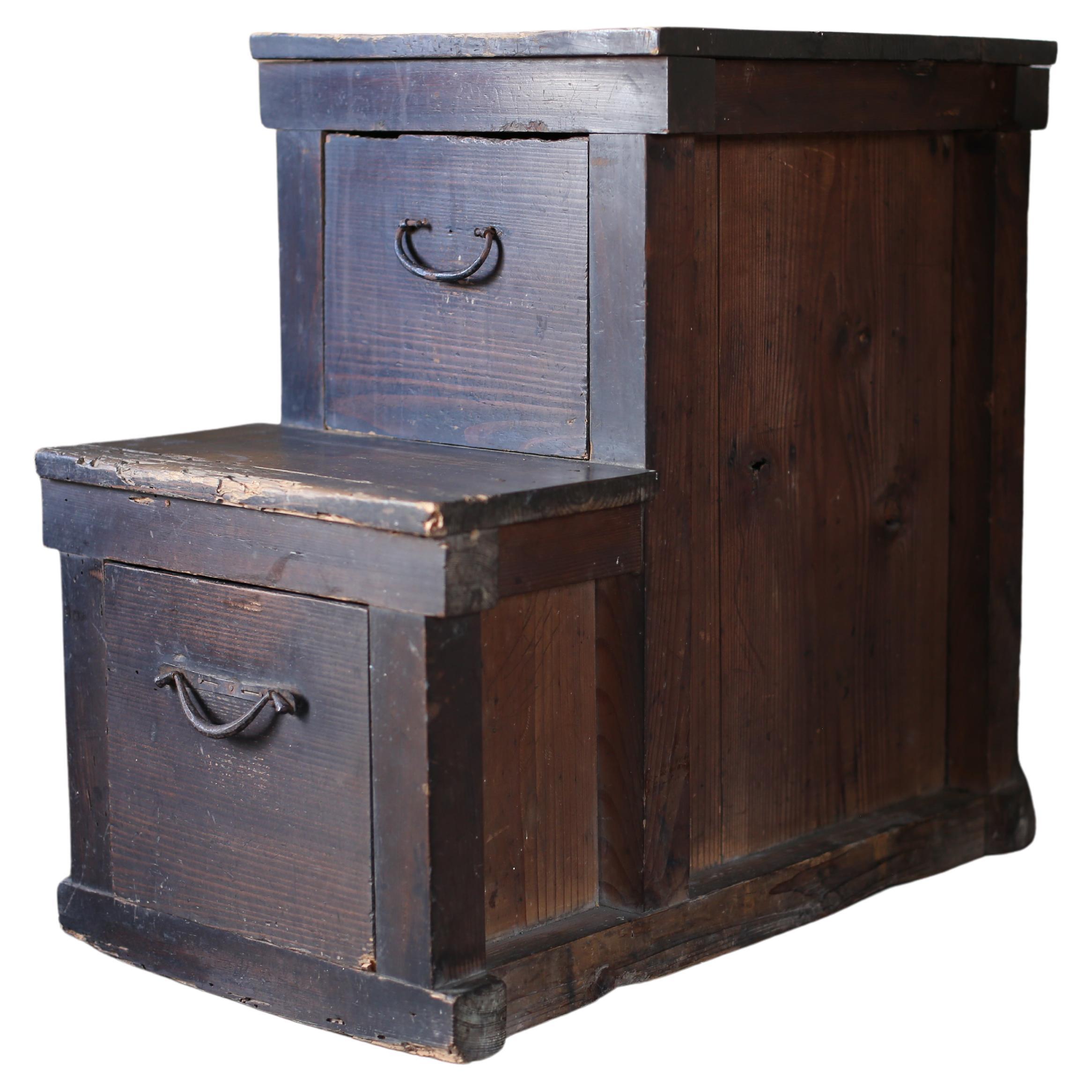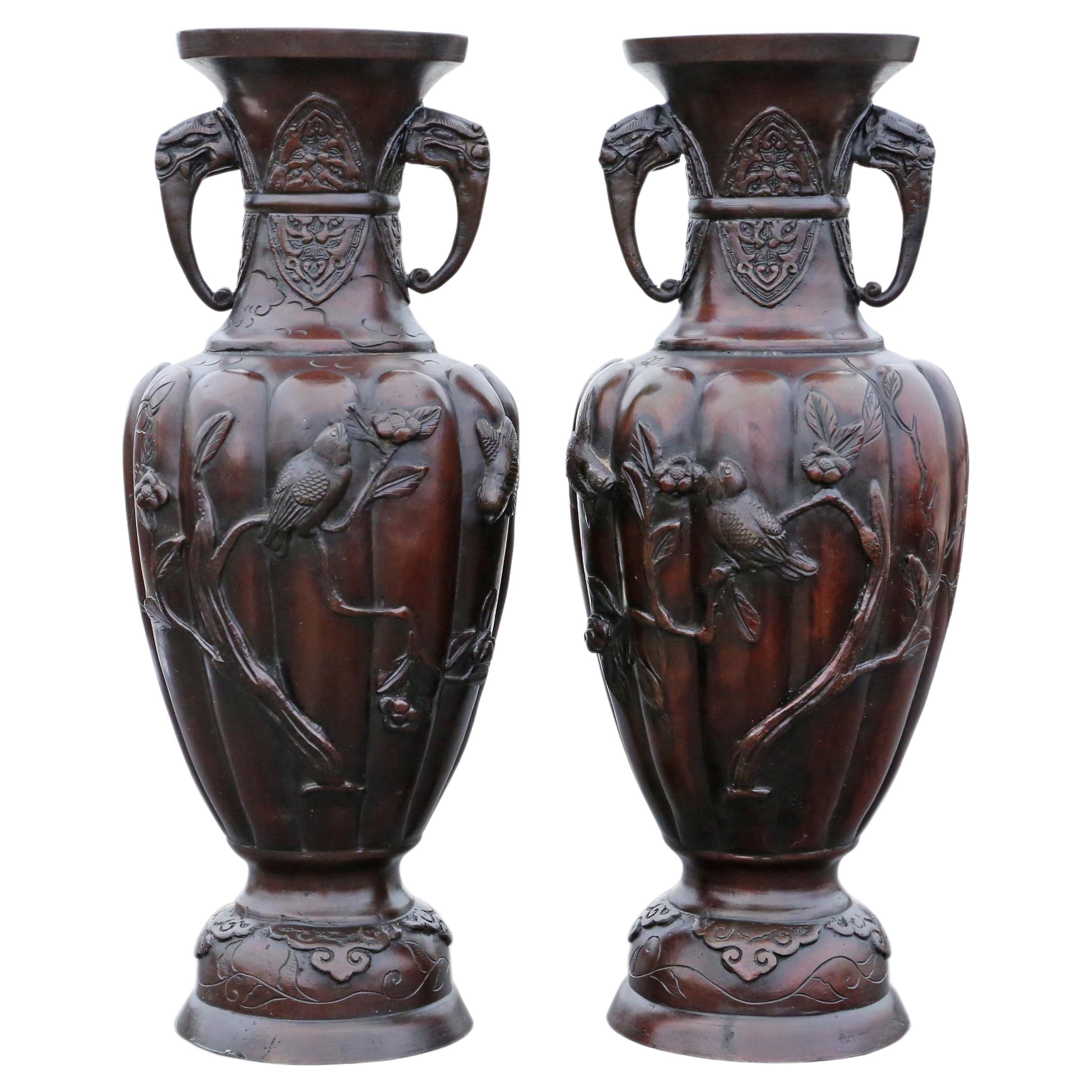Items Similar to Group of 4 Musicians, Japan Antique, Meiji Period around 1880
Want more images or videos?
Request additional images or videos from the seller
1 of 7
Group of 4 Musicians, Japan Antique, Meiji Period around 1880
About the Item
Hina Matsuri is celebrated in Japan at the beginning of March. It dates back to the Edo period and is celebrated in the family circle. "Hina Ningyo dolls" were passed down from generation to generation, and on March 3rd, during the traditional girls' festival, they were placed on a pedestal in order of rank to protect young girls from harm. The small, colorful figures are dressed in the style of the Heian period and represent the emperor, the empress and their court.
The orginal instruments are missing.
- Dimensions:Height: 9.45 in (24 cm)Width: 6.3 in (16 cm)Depth: 5.91 in (15 cm)
- Sold As:Set of 4
- Materials and Techniques:
- Place of Origin:
- Period:
- Date of Manufacture:1880
- Condition:Wear consistent with age and use.
- Seller Location:Munich, DE
- Reference Number:1stDibs: LU4502227593462
About the Seller
5.0
Vetted Seller
These experienced sellers undergo a comprehensive evaluation by our team of in-house experts.
Established in 1972
1stDibs seller since 2019
16 sales on 1stDibs
Typical response time: 21 hours
- ShippingRetrieving quote...Ships From: Munich, Germany
- Return PolicyThis item cannot be returned.
More From This SellerView All
- Japanese Shinto ShrineLocated in Munich, BavariaThis beautiful Shinto Shrine is called ´Yamako´ and represents a Japanese antique house altar. It is very elaborately carved by hand and decorated with m...Category
20th Century Unknown Japonisme More Asian Art, Objects and Furniture
MaterialsCopper
- Pair of Rare Antique Glas Cabinets from ThailandLocated in Munich, BavariaThese 2 beautiful glas cabinet from Thailand and are made from hand carved teakwood and have a base of antique green paint with golden details. Definitely a rare pair of antique cabinets...Category
20th Century Thai Arts and Crafts More Asian Art, Objects and Furniture
MaterialsGold
- Japanese Samurai Figure Hinaningyo, Edo PeriodLocated in Munich, BavariaAntique samurai doll called Hinaningyo; Japan, late EDO period Praised at the Tang-no-sekku boys' festival on May 5th as a sign of bravery, embodying the...Category
Antique Mid-18th Century Japanese Antiquities
MaterialsTextile, Wood
- Rare Wood Screens 'Set of 3' of Kalengo Wood by Jerome Abel SequinBy Jerome Abel SeguinLocated in Munich, BavariaThese beautifully crafted wooden screens are by the designer and artist Jerome Abel Seguin who carves and works these beautiful pieces in his studio in France. Each of the 3 elements...Category
Late 20th Century French Mid-Century Modern Screens and Room Dividers
MaterialsWood
- Pair of Karl Springer PedestalsBy Karl SpringerLocated in Munich, BavariaThese two beautiful crafted pedestal which have been produced by Karl Spinger Ltd., have a Anigre- Wood Veneer and the base and top is covered in dark Lea...Category
20th Century American Pedestals and Columns
MaterialsWood, Leather
- Pair of Art Deco ChairsBy Counot Blandin 1Located in Munich, BavariaThis beautiful pair of Art Deco armchairs are elaborately made. The curved armrests end with a rounding and a black ball detail. The concave legs are made of beech and stained in pal...Category
1990s French Art Deco Chairs
MaterialsUpholstery, Wood
You May Also Like
- Antique Japanese Meiji Period Kneeling Samurai Warrior, Circa 1870-1880Located in Savannah, GAAntique Japanese Kneeling Samurai Warrior, Circa 1870-1880. Japanese Meiji period samurai with detailed presentation of robes and helmet.Category
Antique 19th Century Japanese Meiji Sculptures and Carvings
MaterialsFabric
- Large Japanese Meiji Period Bronze Koro, circa 1880Located in Brighton, SussexA very large and impressive good quality Japanese Meiji period (1868-1912) patinated bronze Koro. Having wonderful mythical dragon handles, a Peacock finial, an Eagle in a tree top and a Sea God under the waves...Category
Antique Late 19th Century Japanese Japonisme Animal Sculptures
MaterialsBronze
- Japan 1890 Meiji Period Signed Assembling of Okimono with a Group of SkeletonsLocated in Miami, FLA signed Okimono from the Japanese Meiji period (1868-1912). Very rare, unusual and large sculptural assembling of a dysplaying piece of okimono. Created in Japan during the imperial period of the Meiji (1868-1912). This extraordinary piece okimono sculpture depict a group of four intricately and realistically rendered carousing males skeletons representations (Gaikotsu) standing in several position. One skeleton is crouched down playing with mouses in the floor. The second is seated resting in the other's back, peacefully smoking opium. The others two are fully standing in interacting position. The entire composition is arranged freely displayed on the wood base including a woven basket, apparently with food and four playfull mouses. There are an extra five mouses in different positions, freely playing around, all of them with the eyes accented with carved black ebony. The composition is displayed on a four-legged free form carved wood platform with an inlaid red plaque engraved with the artist's signature. The level of detail and the quality of the carving is truly exceptional. Has an exact measurements of 216.15 mm by 139.7 mm by 359.41 mm (8.51 x 5.5 x 14.15 Inches). After an extensive collection of data, comparables and references to this piece, we have only been able to find only three okimono sculptures like this, with similar themes and the same quality of work. References Note: A similar carving of four skeletons playing an animated game of dominos, signed Shutaro in an inlaid rectangular red plaque, was sold in London by Christie’s South Kensington in October 14 2014, Lot 120 Sale 5546. References Note: A similar carving with four skeletons in an otherwise typical victorian scene of a photographer and three sitters signed Shutaro in an inlaid rectangular red plaque, was sold in Edinburgh at Lyon & Turnbull in November 7, 2018. References Note: A similar carving with five skeletons seated, playing cards and drinking, was sold in London by John Nicholson Fine Art on September 26, 2018. Meiji period, is an era of Japanese history that extended from October 23, 1868 to July 30, 1912.The Meiji era was the first half of the Empire of Japan, when the Japanese people moved from being an isolated feudal society at risk of colonization by Western powers to the new paradigm of a modern, industrialized nation state and emergent great power, influenced by Western scientific, technological, philosophical, political, legal, and aesthetic ideas. As a result of such wholesale adoption of radically different ideas, the changes to Japan were profound, and affected its social structure, internal politics, economy, military, and foreign relations. The period corresponded to the reign of Emperor Meiji. It was preceded by the Keio era and was succeeded by the Taisho era, upon the accession of Emperor Taisho. Okimono, is a Japanese term meaning for display an ornament; art object; or decorative object, usually displayed in a tokonoma or butsudan "Buddhist altar". It is an ornament or figure, especially one placed in a guest room. An okimono may be a small Japanese carving...Category
Antique 1890s Japanese Meiji Sculptures and Carvings
MaterialsWood
- Japanese Meiji Period ChargersLocated in Miami, FLA stunning collection of six (priced individually) Meiji period petal shaped Imari plates in the very best of condition. With an overall floral decoration in blue, orange and green c...Category
20th Century Japanese Meiji Porcelain
MaterialsPorcelain
- Japanese Antique "Staircase Chest" 'Late Edo Period-Meiji Period' /CabinetLocated in Sammu-shi, ChibaWe have an aesthetic sense peculiar to Japanese people. And we introduce the unique items that only we can do, the route of purchasing in Japan, the experience value so far, and the way that no one can imitate. Japanese antique black chest "staircase chest...Category
Antique 19th Century Japanese Edo Furniture
MaterialsCedar
- Antique Very Large Pair of Japanese Bronze Vases Meiji PeriodLocated in Wisbech, CambridgeshireAntique very large pair of fine quality Japanese bronze vases C1900 Meiji Period. Would look amazing in the right location. Rare large size and design. Overall maximum dimensi...Category
Antique Early 1900s Japanese Metalwork
MaterialsBronze
